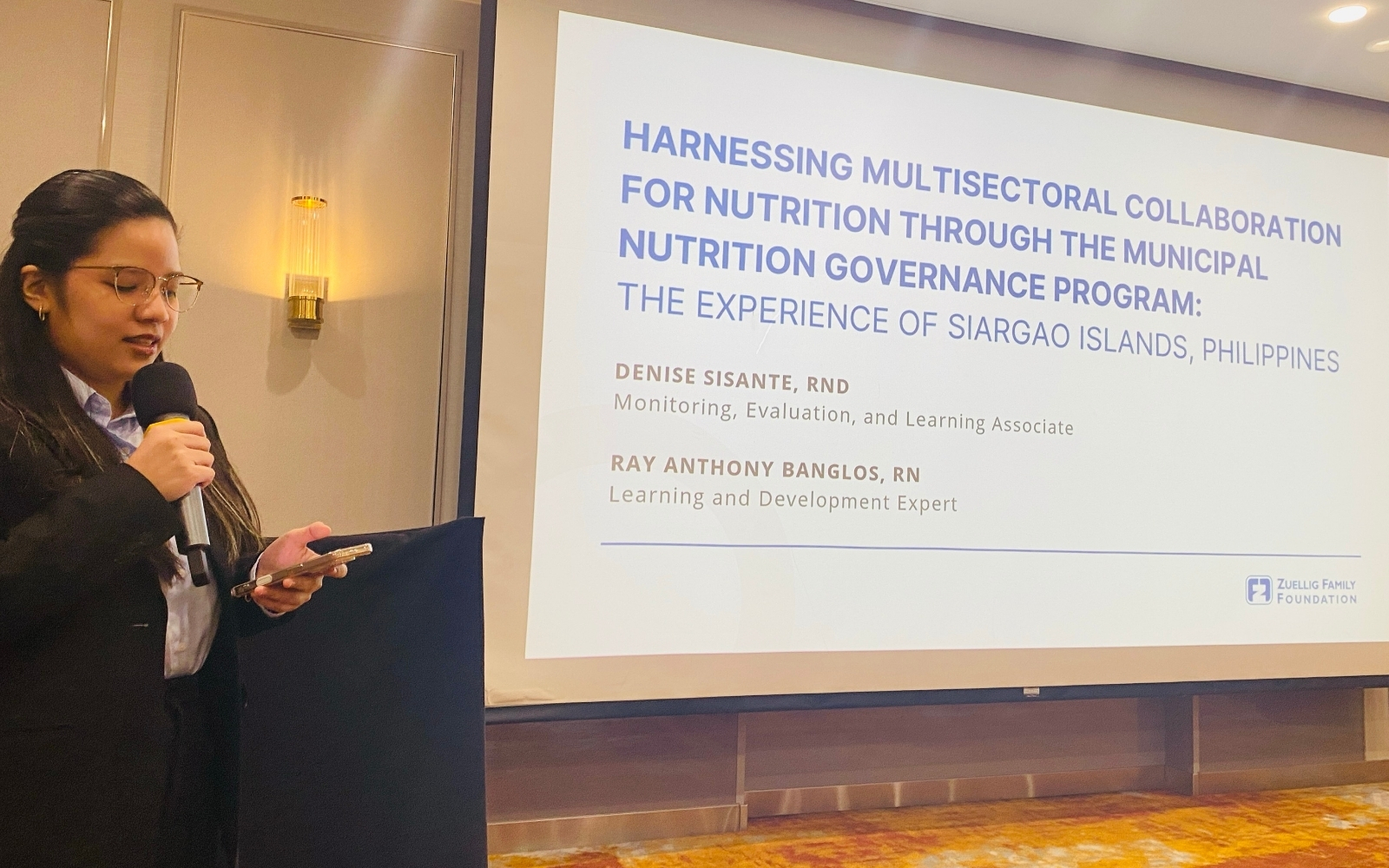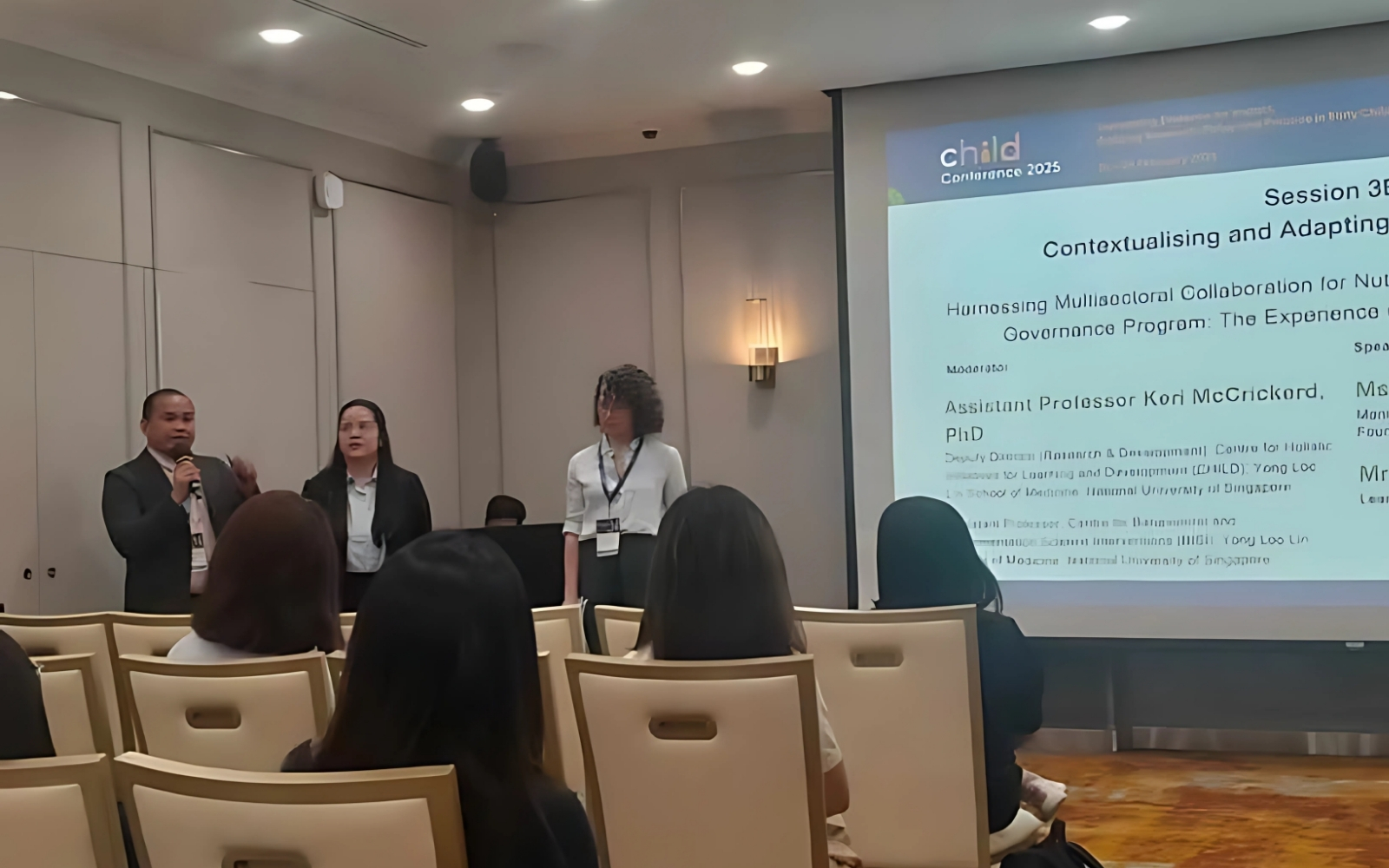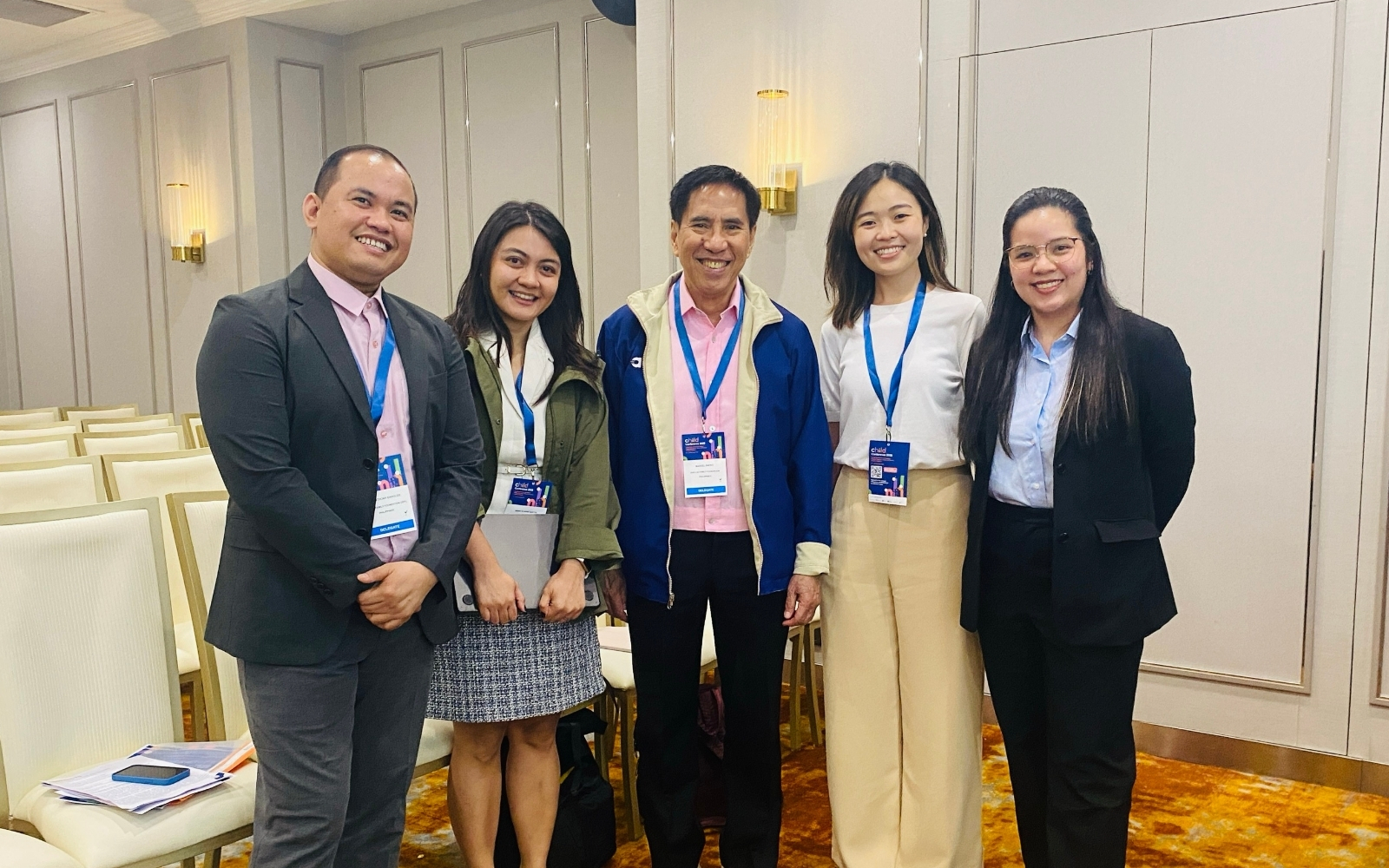Better Policies, Better Nutrition for Kids: A Look at Zuellig Family Foundation’s Work in Siargao
Stories | by Krizzia Esperanza

Child malnutrition is a persistent issue in the Philippines, affecting millions of children. In the province of Surigao Del Norte, 14.87% of children under five years old suffer from stunting due to limited access to food, healthcare, and proper nutrition programs. To address this, the Zuellig Family Foundation (ZFF) introduced the Municipal Nutrition Governance Program (MNGP), an initiative aimed at strengthening local nutrition systems through leadership training and multisectoral collaboration.
At the Centre for Holistic Initiatives for Learning and Development (CHILD) Conference 2025 in Singapore, Denise Sisante, Nutrition Monitoring, Evaluation, and Learning Associate at ZFF, presented insights from the MNGP’s implementation in Siargao. The program, which ran from 2023 to 2024, focused on rebuilding nutrition systems that were severely impacted by Typhoon Odette and the COVID-19 pandemic.
Tackling Malnutrition through Local Governance
The MNGP was designed to help local governments create more effective nutrition policies and programs. It introduced the First 1,000 Days Roadmap, an evaluation tool based on the World Health Organization’s (WHO) health system framework. The roadmap assessed key areas, including governance, financing, human resources, service delivery, and social determinants of nutrition.
Through the MNGP, municipal mayors and local department heads from health, agriculture, social welfare, and planning offices worked together to improve child nutrition indicators. The program provided training, coaching, and mentoring sessions to enhance leadership and governance skills, ensuring long-term, sustainable improvements.

Measurable Impact
The results of the program were promising. Baseline assessments revealed that nutrition systems in the participating municipalities were weak, relying on unsustainable solutions and short-term, band-aid approaches, while battling for scarce resources. However, after a year of implementing the MNGP, significant improvements were recorded. The First 1,000 Days Roadmap showed better performance across governance and service delivery, while key informant interviews confirmed that local officials were more engaged in addressing child malnutrition.
Municipal mayors highlighted the importance of working together across different sectors to address nutritional challenges. They recognized the need for strong leadership, good data collection, and continuous training for their teams to sustain these improvements.
Lessons for the Future
The MNGP experience in Siargao offers valuable lessons for policymakers and program implementers:
- Multisectoral collaboration is key. Bringing together leaders from different sectors ensures that resources and expertise are maximized.
- Good data drives better decisions. An efficient health and nutrition information system helps track progress and allows timely interventions.
- Training and leadership development matter. Providing local leaders with the necessary skills empowers them to implement lasting nutrition programs.

The CHILD Conference 2025 provided a platform for sharing best practices in early child development. Beyond the presentation, ZFF used the event to build partnerships with academic institutions and organizations that share the same goal: improving health and nutrition systems for children worldwide.
By linking research, policy, and action, ZFF hopes to inspire more communities to develop localized solutions to child malnutrition. Their work in Siargao is proof that with strong governance and collaboration, better nutrition outcomes for children are achievable.